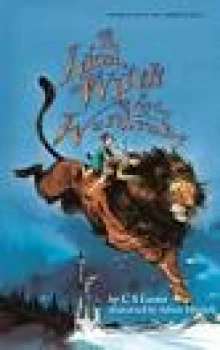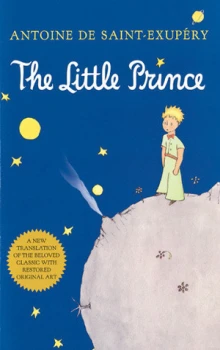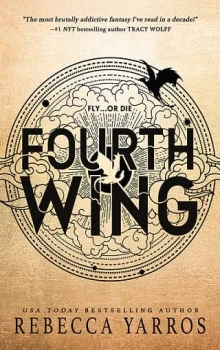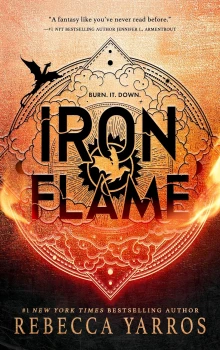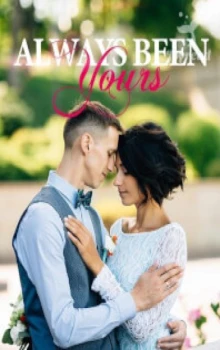Deeper Magic
From Before
The Dawn of
Time
W
HILE the two girls still crouched in the bushes with
their hands over their faces, they heard the voice of
the Witch calling out,
“Now! Follow me all and we will set about what
remains of this war! It will not take us long to crush the human vermin
and the traitors now that the great Fool, the great Cat, lies dead.”
At this moment the children were for a few seconds in very great
danger. For with wild cries and a noise of skirling pipes and shrill
horns blowing, the whole of that vile rabble came sweeping off the
hill-top and down the slope right past their hiding-place. They felt the
Spectres go by them like a cold wind and they felt the ground shake
beneath them under the galloping feet of the Minotaurs; and overhead
there went a flurry of foul wings and a blackness of vultures and giant
bats. At any other time they would have trembled with fear; but now
the sadness and shame and horror of Aslan’s death so filled their
Clive Staples Lewis84
minds that they hardly thought of it.
As soon as the wood was silent again Susan and Lucy crept out onto
the open hill-top. The moon was getting low and thin clouds were
passing across her, but still they could see the shape of the Lion lying
dead in his bonds. And down they both knelt in the wet grass and
kissed his cold face and stroked his beautiful fur — what was left of it
— and cried till they could cry no more. And then they looked at each
other and held each other’s hands for mere loneliness and cried again;
and then again were silent. At last Lucy said,
“I can’t bear to look at that horrible muzzle. I wonder could we take
if off?”
So they tried. And after a lot of working at it (for their fingers were
cold and it was now the darkest part of the night) they succeeded. And
when they saw his face without it they burst out crying again and
kissed it and fondled it and wiped away the blood and the foam as well
as they could. And it was all more lonely and hopeless and horrid than
I know how to describe.
“I wonder could we untie him as well?” said Susan presently. But the
enemies, out of pure spitefulness, had drawn the cords so tight that
the girls could make nothing of the knots.
I hope no one who reads this book has been quite as miserable as
Susan and Lucy were that night; but if you have been — if you’ve been
up all night and cried till you have no more tears left in you — you will
know that there comes in the end a sort of quietness. You feel as if
nothing was ever going to happen again. At any rate that was how it
felt to these two. Hours and hours seemed to go by in this dead calm,
and they hardly noticed that they were getting colder and colder. But
at last Lucy noticed two other things. One was that the sky on the east
side of the hill was a little less dark than it had been an hour ago. The
other was some tiny movement going on in the grass at her feet. At
first she took no interest in this. What did it matter? Nothing mattered
now! But at last she saw that whatever-it-was had begun to move up
the upright stones of the Stone Table. And now whatever-they-were
were moving about on Aslan’s body. She peered closer. They were
little grey things.
“Ugh!” said Susan from the other side of the Table. “How beastly!
There are horrid little mice crawling over him. Go away, you little
beasts.” And she raised her hand to frighten them away.
85The Lion, the Witch and the wardrobe
“Wait!” said Lucy, who had been looking at them more closely still.
“Can you see what they’re doing?”
Both girls bent down and stared.
“I do believe —” said Susan. “But how queer! They’re nibbling away
at the cords!”
“That’s what I thought,” said Lucy. “I think they’re friendly mice.
Poor little things — they don’t realize he’s dead. They think it’ll do
some good untying him.”
It was quite definitely lighter by now. Each of the girls noticed for the
first time the white face of the other. They could see the mice nibbling
away; dozens and dozens, even hundreds, of little field mice. And at
last, one by one, the ropes were all gnawed through.
The sky in the east was whitish by now and the stars were getting
fainter — all except one very big one low down on the eastern
horizon. They felt colder than they had been all night. The mice crept
away again.
The girls cleared away the remains of the gnawed ropes. Aslan
looked more like himself without them. Every moment his dead face
looked nobler, as the light grew and they could see it better.
In the wood behind them a bird gave a chuckling sound. It had been
so still for hours and hours that it startled them. Then another bird
answered it. Soon there were birds singing all over the place.
It was quite definitely early morning now, not late night.
“I’m so cold,” said Lucy.
“So am I,” said Susan. “Let’s walk about a bit.”
They walked to the eastern edge of the hill and looked down. The
one big star had almost disappeared. The country all looked dark
grey, but beyond, at the very end of the world, the sea showed pale.
The sky began to turn red. They walked to and fro more times than
they could count between the dead Aslan and the eastern ridge,
trying to keep warm; and oh, how tired their legs felt. Then at last,
as they stood for a moment looking out towards they sea and Cair
Paravel (which they could now just make out) the red turned to gold
along the line where the sea and the sky met and very slowly up
came the edge of the sun. At that moment they heard from behind
them a loud noise — a great cracking, deafening noise as if a giant
had broken a giant’s plate.
“What’s that?” said Lucy, clutching Susan’s arm.
Clive Staples Lewis86
“I — I feel afraid to turn round,” said Susan; “something awful is
happening.”
“They’re doing something worse to
Him,” said Lucy. “Come on!”
And she turned, pulling Susan round with her.
The rising of the sun had made everything look so different — all
colours and shadows were changed that for a moment they didn’t see
the important thing. Then they did. The Stone Table was broken into
two pieces by a great crack that ran down it from end to end; and
there was no Aslan.
“Oh, oh, oh!” cried the two girls, rushing back to the Table.
“Oh, it’s
too bad,” sobbed Lucy; “they might have left the body
alone.”
“Who’s done it?” cried Susan. “What does it mean? Is it magic?”
“Yes!” said a great voice behind their backs. “It is more magic.”
They looked round. There, shining in the sunrise, larger than they had
seen him before, shaking his mane (for it had apparently grown again)
stood Aslan himself.
“Oh, Aslan!” cried both the children, staring up at him, almost as
much frightened as they were glad.
“Aren’t you dead then, dear Aslan?” said Lucy.
“Not now,” said Aslan.
“You’re not — not a — ?” asked Susan in a shaky voice. She couldn’t
bring herself to say the word
ghost.
Aslan stooped his golden head and licked her forehead. The warmth
of his breath and a rich sort of smell that seemed to hang about his
hair came all over her.
“Do I look it?” he said.
“Oh, you’re real, you’re real! Oh, Aslan!” cried Lucy, and both girls
flung themselves upon him and covered him with kisses.
“But what does it all mean?” asked Susan when they were some-
what calmer.
“It means,” said Aslan, “that though the Witch knew the Deep
Magic, there is a magic deeper still which she did not know: Her
knowledge goes back only to the dawn of time. But if she could have
looked a little further back, into the stillness and the darkness before
Time dawned, she would have read there a different incantation. She
would have known that when a willing victim who had committed no
87The Lion, the Witch and the wardrobe
treachery was killed in a traitor’s stead, the Table would crack and
Death itself would start working backwards. And now -”
“Oh yes. Now?” said Lucy, jumping up and clapping her hands.
“Oh, children,” said the Lion, “I feel my strength coming back to me.
Oh, children, catch me if you can!” He stood for a second, his eyes
very bright, his limbs quivering, lashing himself with his tail. Then he
made a leap high over their heads and landed on the other side of the
Table. Laughing, though she didn’t know why, Lucy scrambled over it
to reach him. Aslan leaped again. A mad chase began. Round and
round the hill-top he led them, now hopelessly out of their reach, now
letting them almost catch his tail, now diving between them, now
tossing them in the air with his huge and beautifully velveted paws and
catching them again, and now stopping unexpectedly so that all three
of them rolled over together in a happy laughing heap of fur and arms
and legs. It was such a romp as no one has ever had except in Narnia;
and whether it was more like playing with a thunderstorm or playing
with a kitten Lucy could never make up her mind. And the funny thing
was that when all three finally lay together panting in the sun the girls
no longer felt in the least tired or hungry or thirsty.
“And now,” said Aslan presently, “to business. I feel I am going to
roar. You had better put your fingers in your ears.”
And they did. And Aslan stood up and when he opened his mouth
to roar his face became so terrible that they did not dare to look at it.
And they saw all the trees in front of him bend before the blast of his
roaring as grass bends in a meadow before the wind. Then he said,
“We have a long journey to go. You must ride on me.” And he
crouched down and the children climbed on to his warm, golden back,
and Susan sat first, holding on tightly to his mane and Lucy sat behind
holding on tightly to Susan. And with a great heave he rose under-
neath them and then shot off, faster than any horse could go, down
hill and into the thick of the forest.
That ride was perhaps the most wonderful thing that happened to
them in Narnia. Have you ever had a gallop on a horse? Think of that;
and then take away the heavy noise of the hoofs and the jingle of the
bits and imagine instead the almost noiseless padding of the great
paws. Then imagine instead of the black or grey or chestnut back of
the horse the soft roughness of golden fur, and the mane flying back
in the wind. And then imagine you are going about twice as fast as the
Clive Staples Lewis88
fastest racehorse. But this is a mount that doesn’t need to be guided
and never grows tired. He rushes on and on, never missing his footing,
never hesitating, threading his way with perfect skill between tree
trunks, jumping over bush and briar and the smaller streams, wading
the larger, swimming the largest of all. And you are riding not on a
road nor in a park nor even on the downs, but right across Narnia, in
spring, down solemn avenues of beech and across sunny glades of
oak, through wild orchards of snow-white cherry trees, past roaring
waterfalls and mossy rocks and echoing caverns, up windy slopes
alight with gorse bushes, and across the shoulders of heathery moun-
tains and along giddy ridges and down, down, down again into wild
valleys and out into acres of blue flowers.
It was nearly midday when they found themselves looking down a
steep hillside at a castle — a little toy castle it looked from where they
stood — which seemed to be all pointed towers. But the Lion was
rushing down at such a speed that it grew larger every moment and
before they had time even to ask themselves what it was they were
already on a level with it. And now it no longer looked like a toy castle
but rose frowning in front of them. No face looked over the battle-
ments and the gates were fast shut. And Aslan, not at all slacking his
pace, rushed straight as a bullet towards it.
“The Witch’s home!” he cried. “Now, children, hold tight.”
Next moment the whole world seemed to turn upside down, and the
children felt as if they had left their insides behind them; for the Lion
had gathered himself together for a greater leap than any he had yet
made and jumped — or you may call it flying rather than jumping —
right over the castle wall. The two girls, breathless but unhurt, found
themselves tumbling off his back in the middle of a wide stone court-
yard full of statues.
